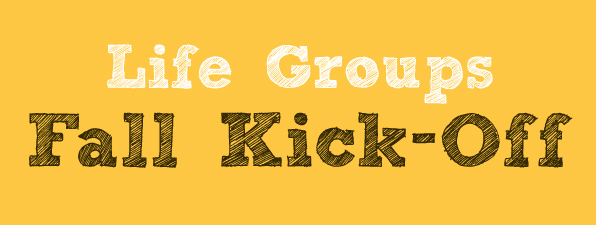
Thursday, September 24th 7 pm, IR Community Center
Life Group leaders, members and Rooted grads looking for a Life Group are invited to join us as we kick off our fall session with a night of connection, vision and community. Dave Runyon, co-author of The Art of Neighboring, will be with us to continue our conversation about how to love and serve our neighbors with the love of Christ. To register, click here.
Lean In // 5 minutes
What’s a great concert you’ve been to?
Leader Note: Be sure to ask follow up questions here… for example, “what did you love about it, how did it make you feel, how did others react?” You may even want to ask, “When was a time you had negative live music experience?”
Look Down // 20 Minutes
Read Psalms 150
What do you learn about worship?
Sample answers may include…
- We are instructed to worship God
- We worship him in his sanctuary, which is our hearts, where he lives
- We worship him in the heaves, join the the angles
- Worship him for his acts of power, saving grace, forgiveness, restoration
- We worship him for his greatness, creative power
- The passage list basically every known instrument of that time, we worship him with everything we have, don’t hold anything back!
Leader Note: Now, point your group to the weekend message (Shut Up And Dance, 9/12-13/2015) where we looked at the different words for worship in scripture. These words lay out the kind of worship God likes, His worship style! Look over these together as you set your group up for the next set of questions.
Set up this next section by asking….
What’s God’s Worship Style?
7 Hebrew Words For Praise
1. Halal
Halal is a primary Hebrew root word for praise. Our word “hallelujah” comes from this base word. It means “to be clear, to shine, to boast, show, to rave, celebrate, to be clamorously foolish.”
Praise (halal) ye the Lord, praise (halal) o ye servants of the Lord, praise (halal) the name of the Lord. Ps 113:1-3
2. Yadah
Yadah is a verb with a root meaning, “the extended hand, to throw out the hand, therefore to worship with extended hand.”
So I will bless thee as long as I live; I will (yadah) lift up my hands in thy name. Ps 63:1
3. Towdah
Towdah comes from the same principle root word as yadah, but is used more specifically. Towdah literally means, “an extension of the hand in adoration, avowal, or acceptance.” By way of application, it is appratent in the Psalms and elsewhere that it is used for thanking God for “things not yet received” as well as things already at hand.
Offer unto God praise (towdah) and pay thy vows unto the Most High. Ps 50:14
4. Shabach
Shabach means, “to shout, to address in a loud tone, to command, to triumph.”
O clap your hands, all peoples; shout (shabach) to God with the voice of joy (or triumph). Ps 47:1
5. Barak
Barak means “to kneel down, to bless God as an act of adoration.”
O come let us worship and bow down; let us kneel (barak) before the Lord our maker. Ps 95:6
6. Zamar
Zamar means “to pluck the strings of an instrument, to sing, to praise; a musical word which is largely involved with joyful expressions of music with musical instruments.
Be exalted O Lord, in Thine own strength, so will we sing and praise (zamar) Thy power. Ps 21:13
7. Tehillah
Tehillah is derived from the word halal and means “the singing of halals, to sing or to laud; perceived to involve music, especially singing; hymns of the Spirit.
Yet Thou art holy, O Thou who art enthroned upon the praises (tehillah) of Israel. Ps 22:3
Look Out // 10 minutes
Where have you seen this kind of worship?
Leader Note: Have you group think about places they’ve seen this type of worship, in a church setting or even out in our world. Then ask the next question.
Why does God like these things?
Leader Note: What do you think is the value of this type of worship in God’s eyes? What does it communicate to him, what does it do in us?
Look In // 20 minutes
Leader Note: This next section requires you as a leader to lean in to not only your group members but to yourself. We want our groups to see that all of these things are for us! You yourself may not be comfortable raising your hands or dancing… but don’t lean back and let yourself or others off the hook. The truth is we do all of these things in lots of settings. We dance at weddings, with our our kids. We shout at sporting events. Why would we hold back worshipping God with everything we have!
Which of these are you leaning into, which ones are you leaning back from and why?
Why would God want this for you?
Leader Note: Often the ones we are most uncomfortable with is where God wants to teach us more about himself and more about us. Press into your group here, don’t let anyone off easy! Remember, the aim is allow your group to see that these are for all us!
Live It Out // 5 minutes
What would change in if you worshiped this way, how could others impacted?
Click here for Life Group Serve Opportunities
Learn More About Flow Questions: Check out Kenton Beshore’s book Ask in the Irvine Campus Bookstore for more on the Flow Question model.
